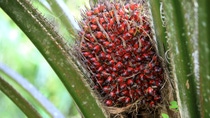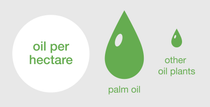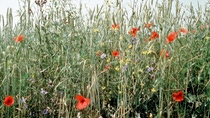Agriculture
Oil Palm
The acceptance of palm oil worldwide is due to its unique properties that encourage its use in a wide range of end products. In the food industry, palm oil is used as a cooking oil and shortening and in the manufacture of margarine, non-dairy creamers and ice cream. Palm oil produced from the oil palm tree is a main source of income for many farmers in South East Asia, Central and West Africa, and Central America.

In perennial crops like oil palm, weeds grow constantly, prompted by the weather and changing seasons. Frequently, outbreaks of weeds occur after a long dry season. This is thus a period when weeding and application of herbicides are carried out more extensively. However, overreliance on Glyphosate has caused serious weed resistance problems in recent years.
The use of Glufosinate-ammonium as an alternative to Glyphosate helps avoid problems of weed resistance in oil palm. Glufosinate-ammonium is a highly effective tool for controlling a broad spectrum of weeds in oil palm, and has thus enabled a significant increase in yields over the last three decades. Also, the herbicide can be used to manage weeds in plantations not only to reduce competition to the oil palms, but also to minimize soil erosion and maintain habitats.

Did you know?
- Palm oil has now overtaken soybean oil to be the world’s leading vegetable oil. It yields up to 10 times more oil per hectare than rapeseed, soybeans or sunflowers.1
- A research study on oil palm in Ghana found a very high diversity of weed species - 136 weed species were present in a 50-hectare oil palm plantation.2
Please select crop from list
FAO Citrus Fruit Fresh and Processed Annual Statistics 2012.
Yara US. Crop Nutrition: World Citrus Production.








